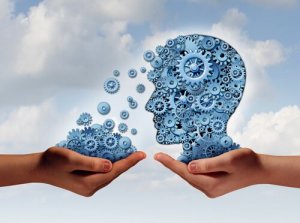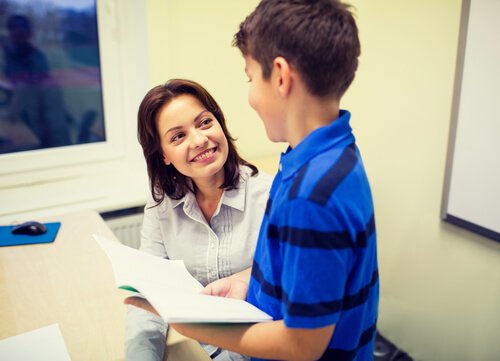The Importance of Having an Educational Psychologist

An educational psychologist studies human behavior and cognitive processes in an educational context. Although there’s a lot of information about them, we’re going to focus on the importance of educational psychologists at schools in this article.
Schools or institutes are the places most educational psychologists work at after graduating. Now, what role do they play in an institution? What’s their job exactly? This is where the first problem arises: as of now, educational psychologists aren’t used in many countries. Therefore, most educational psychologists end up becoming counselors or clinical psychologists at schools.
People often think that educational psychologists and counselors are the same. However, this isn’t entirely correct. Although their training allows them to perform a counselor’s duties, educational psychologists at schools are in charge of different goals.
That being said, in order to distinguish between both roles, it’s necessary to understand what the role of a counselor is in an educational institution beforehand.
What do school counselors do?
School counselors are essential in an educational institution since they’re in charge of psychopedagogical intervention. Orientation is a service that schools offer students so a professional can guide their learning and long-term goals to optimize their education to the fullest. They’re the ones in charge of addressing the educational problems that arise in school environments.
A school counselor focuses on the students, while also taking into account the environment and the educational community. Therefore, we can say that this professional works in the applied field of educational psychology, using the resources that different studies on psychology and pedagogy have provided.

Here are the functions of an educational counselor:
- Advise students, tutors, and families in order to improve educational quality and the academic environment.
- Identify students’ educational needs and act accordingly.
- Work along with the students’ teachers and families to prevent and detect learning difficulties.
- Ensure that all students receive an adequate and continuous education, no matter how different their needs may be.
- Provide psychopedagogical advice to teachers and principals. This will teach them how to act in response to students’ specific needs.
- Tend to students’ functional diversity so the school achieves an inclusive and universal education. They should make no student feel excluded from the educational environment.
- Contribute to the interaction between the members of the educational community for a better communication.
- Participate in the school’s planning and/or decision-making, as well as in all teacher meetings. That way, the counselor is always informed and involved in the events that go on in the institution.
What does an educational psychologist do?
However, although school counselors are essential, the truth is that they don’t cover all the school’s technical needs in the psychoeducational field. For this reason, it’s essential to have a professional who can manage them. This professional is an educational psychologist. In contrast to a school counselor, an educational psychologist should be more focused on research and evaluation.
Both schools and education are constantly changing, which means that the application of non-personalized standardized methods tends to have very poor results. This explains the need for an educational psychologist who can know how to act when different changes arise.

Another differentiating aspect is that they don’t deal with the students per se. They deal with the entire school community and the institution itself. They must always be aware of the teaching methods that the teachers use, making sure that their way of instructing and educating the students is correct and appropriate. Additionally, they’re in charge of making sure that the school community responds to all educational demands.
Educational psychologists at schools act as supervisors and planners. They observe the way the students learn and retain information. They base their actions on scientific research and never on personal criteria.
An essential aspect of educational psychologists is the fact that they collaborate with different professionals in the institution, as well as with the rest of the school community (parents, tutors, and students).
Their main goal is to work on the most basic aspects of any educational institution to ensure progress. That way, they help the institution achieve their expected results and provide the students with the quality education they deserve.
Necessary changes in the educational system
As of now, very few schools have educational psychologists. In fact, many times counselors play their role. Ensuring a proper educational environment is a complicated job that education professionals must carry out at all costs. Overloading the counselor is counterproductive. This is why having an educational psychologist is so important.
Education shouldn’t be affected by political or economic interests. From a productivity and effectiveness standpoint, it’s best to have a whole team of professionals doing their jobs instead of one who takes care of everything just to save money. All educational experts and scientists must collaborate and work together to achieve a great educational system.
“Education is the passport to the future, for tomorrow belongs to those who prepare for it today.”
-Malcolm X-
An educational psychologist studies human behavior and cognitive processes in an educational context. Although there’s a lot of information about them, we’re going to focus on the importance of educational psychologists at schools in this article.
Schools or institutes are the places most educational psychologists work at after graduating. Now, what role do they play in an institution? What’s their job exactly? This is where the first problem arises: as of now, educational psychologists aren’t used in many countries. Therefore, most educational psychologists end up becoming counselors or clinical psychologists at schools.
People often think that educational psychologists and counselors are the same. However, this isn’t entirely correct. Although their training allows them to perform a counselor’s duties, educational psychologists at schools are in charge of different goals.
That being said, in order to distinguish between both roles, it’s necessary to understand what the role of a counselor is in an educational institution beforehand.
What do school counselors do?
School counselors are essential in an educational institution since they’re in charge of psychopedagogical intervention. Orientation is a service that schools offer students so a professional can guide their learning and long-term goals to optimize their education to the fullest. They’re the ones in charge of addressing the educational problems that arise in school environments.
A school counselor focuses on the students, while also taking into account the environment and the educational community. Therefore, we can say that this professional works in the applied field of educational psychology, using the resources that different studies on psychology and pedagogy have provided.

Here are the functions of an educational counselor:
- Advise students, tutors, and families in order to improve educational quality and the academic environment.
- Identify students’ educational needs and act accordingly.
- Work along with the students’ teachers and families to prevent and detect learning difficulties.
- Ensure that all students receive an adequate and continuous education, no matter how different their needs may be.
- Provide psychopedagogical advice to teachers and principals. This will teach them how to act in response to students’ specific needs.
- Tend to students’ functional diversity so the school achieves an inclusive and universal education. They should make no student feel excluded from the educational environment.
- Contribute to the interaction between the members of the educational community for a better communication.
- Participate in the school’s planning and/or decision-making, as well as in all teacher meetings. That way, the counselor is always informed and involved in the events that go on in the institution.
What does an educational psychologist do?
However, although school counselors are essential, the truth is that they don’t cover all the school’s technical needs in the psychoeducational field. For this reason, it’s essential to have a professional who can manage them. This professional is an educational psychologist. In contrast to a school counselor, an educational psychologist should be more focused on research and evaluation.
Both schools and education are constantly changing, which means that the application of non-personalized standardized methods tends to have very poor results. This explains the need for an educational psychologist who can know how to act when different changes arise.

Another differentiating aspect is that they don’t deal with the students per se. They deal with the entire school community and the institution itself. They must always be aware of the teaching methods that the teachers use, making sure that their way of instructing and educating the students is correct and appropriate. Additionally, they’re in charge of making sure that the school community responds to all educational demands.
Educational psychologists at schools act as supervisors and planners. They observe the way the students learn and retain information. They base their actions on scientific research and never on personal criteria.
An essential aspect of educational psychologists is the fact that they collaborate with different professionals in the institution, as well as with the rest of the school community (parents, tutors, and students).
Their main goal is to work on the most basic aspects of any educational institution to ensure progress. That way, they help the institution achieve their expected results and provide the students with the quality education they deserve.
Necessary changes in the educational system
As of now, very few schools have educational psychologists. In fact, many times counselors play their role. Ensuring a proper educational environment is a complicated job that education professionals must carry out at all costs. Overloading the counselor is counterproductive. This is why having an educational psychologist is so important.
Education shouldn’t be affected by political or economic interests. From a productivity and effectiveness standpoint, it’s best to have a whole team of professionals doing their jobs instead of one who takes care of everything just to save money. All educational experts and scientists must collaborate and work together to achieve a great educational system.
“Education is the passport to the future, for tomorrow belongs to those who prepare for it today.”
-Malcolm X-
This text is provided for informational purposes only and does not replace consultation with a professional. If in doubt, consult your specialist.







